The Primary Arms GLx 4-16x50FFP riflescope is on its third rifle of mine.
At $750, the GLx scope is a bargain.
Primary Arms keeps manufacturing costs down by building the scopes in the Philippines at a top OEM factory.
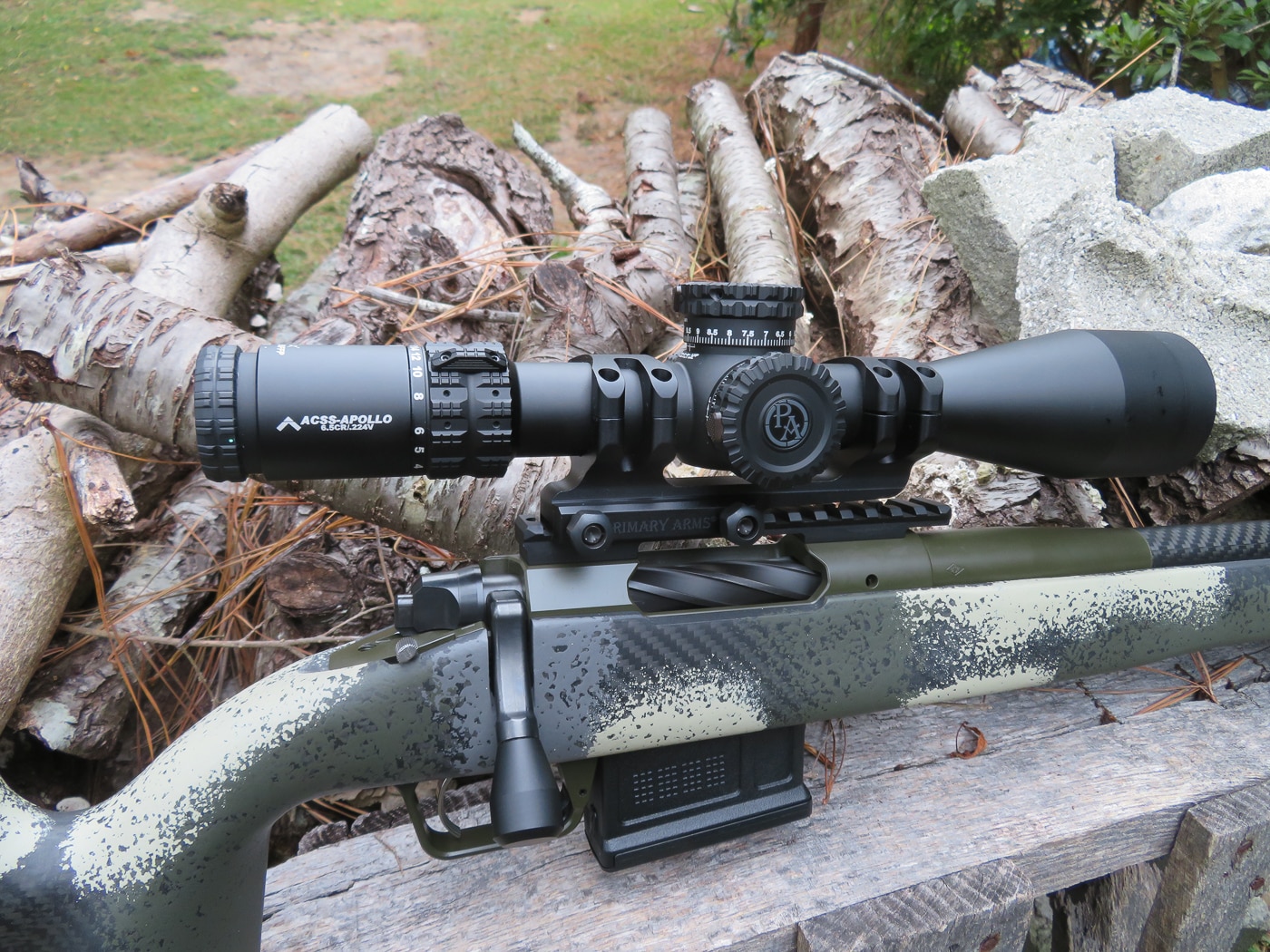
The GLx 4-16x50FFP riflescope has good ergonomics, crystal clear glass, and consistency without the bulk. It pairs well with rifles like this Model 2020 Waypoint by Springfield Armory.
The first thing I noticed with the GLx was the clarity of the glass.
Edge to edge, the picture was crystal clear and sharp.
Colors are vibrant so you might see into shadows to distinguish antlers from branch twigs.
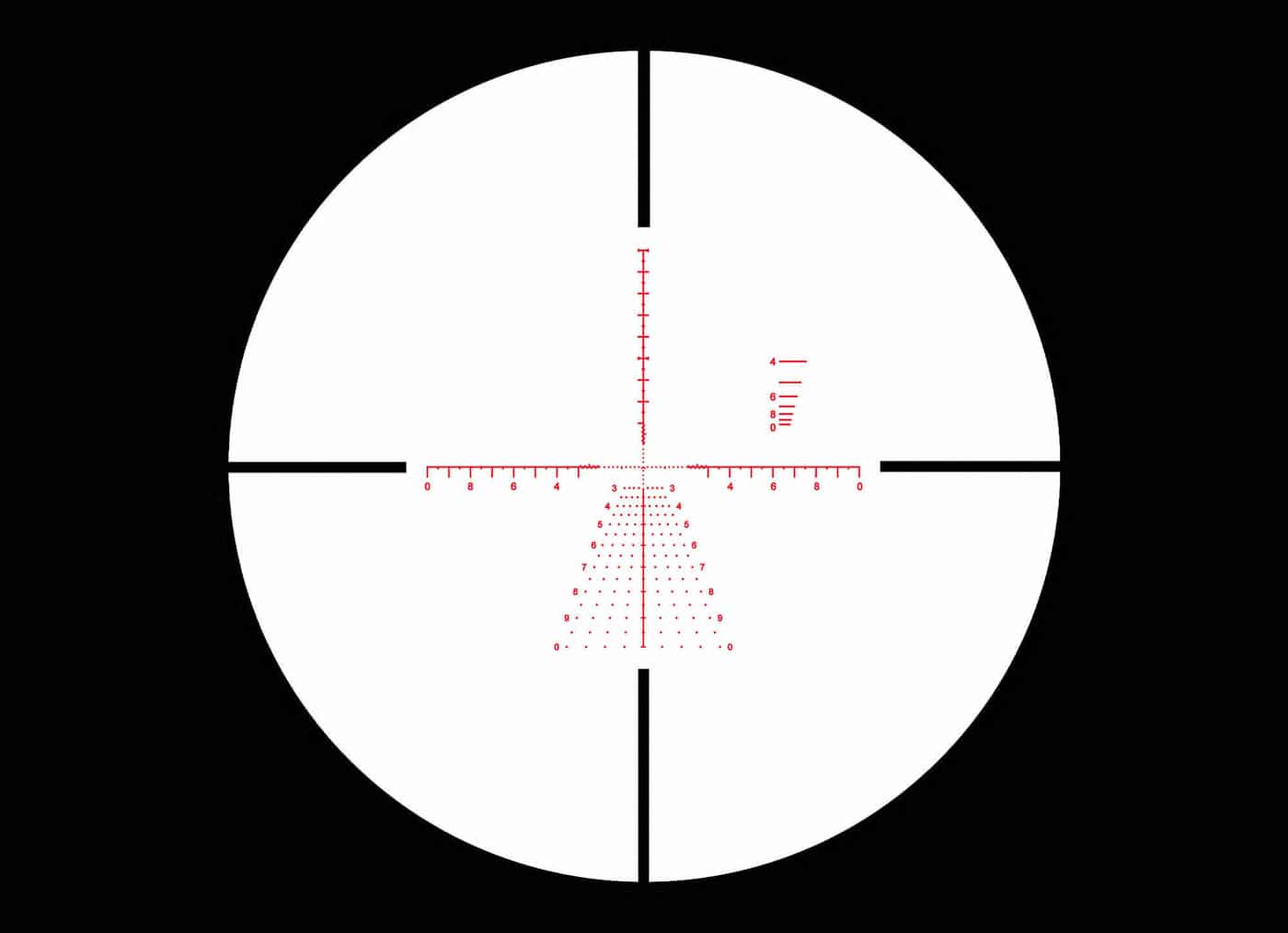
The ACSS APOLLO reticle uses a familiar Christmas tree design. It is calibrated for 6.5 Creedmoor and .224 Valkyrie. Image: Primary Arms
At dawn and dusk, the scope sucks up light so targets are easier to spot and view.
The reticle increases or decreases in size as you adjust magnification.
The resistance of the knurled magnification ring requires a good grip.
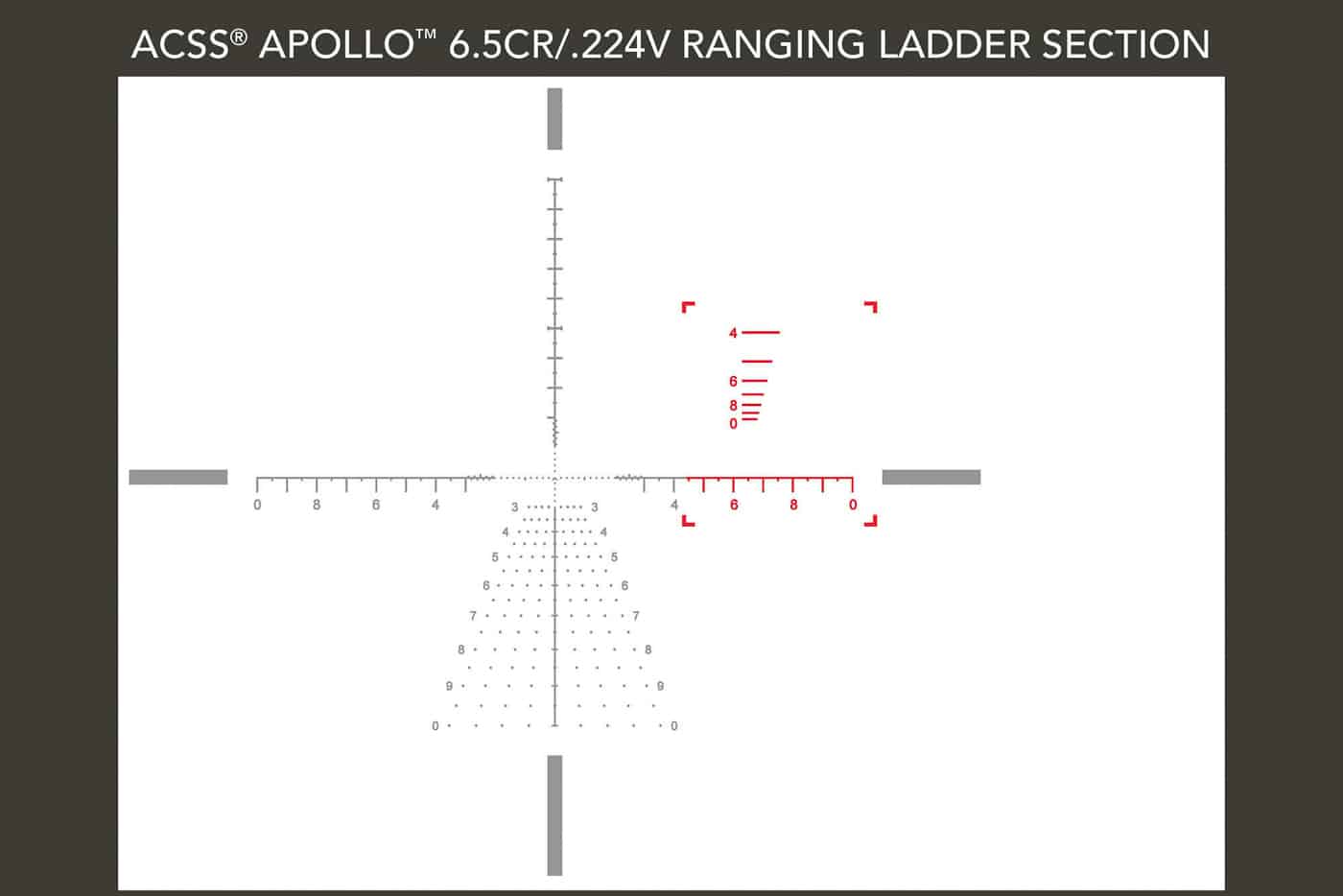
The ranging ladder in the upper right quadrant of the reticle quickly allows users to range targets by height or width. Image: Primary Arms
Rest assured, magnification will not change if the scope is accidentally bumped.
A lever would make adjusting the magnification easier, but they can snag on gear or the environment.
Instead, Primary Arms decided to add a raised tab that provides the needed leverage.
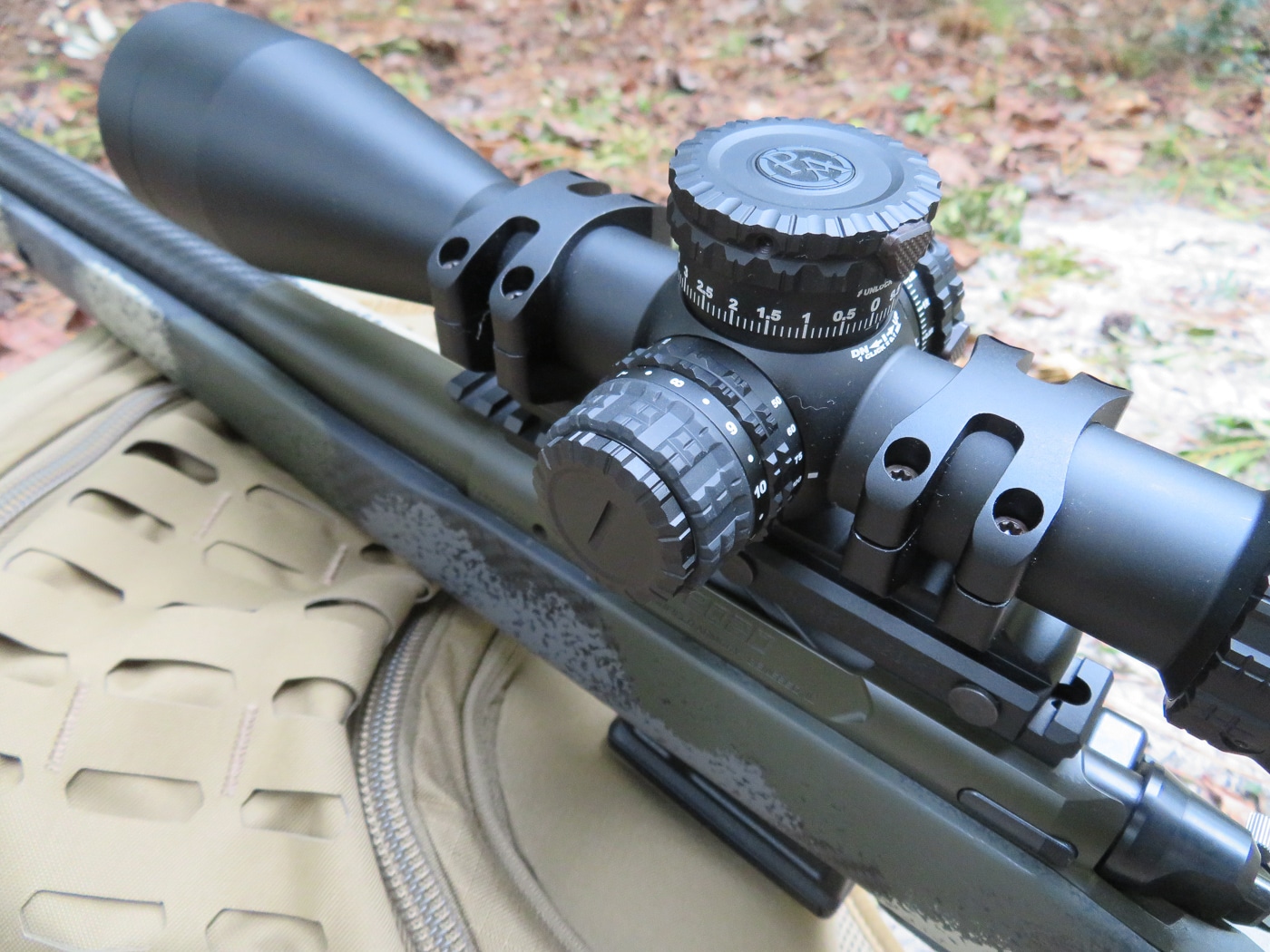
The low-profile turrets are equipped with Primary Arms’ Auto Locking System that doesn’t hinder usability. The knobs are knurly and can easily be turned with gloved hands.
The tab can be moved to three different positions depending on how you use the magnification ring.
The low-profile turrets are large and gnarly and easily manipulated, even with gloved hands.
Shooters are either for or against locking turrets.
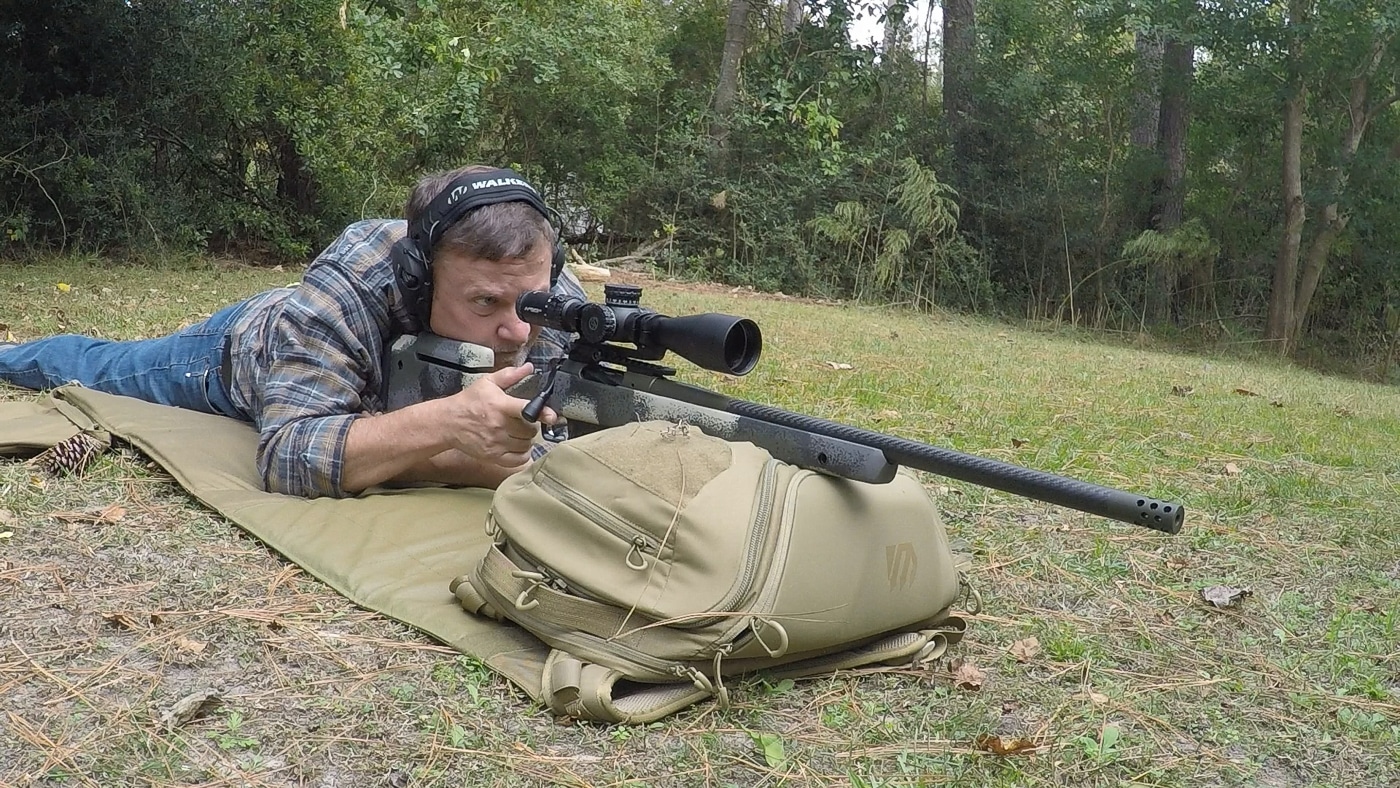
Im in the pro locking turrets camp since a bumped turret is less likely to move.
The issue I have with locking turrets regards those with tricky locking systems.
The windage turret is conveniently marked for left and right rotation.
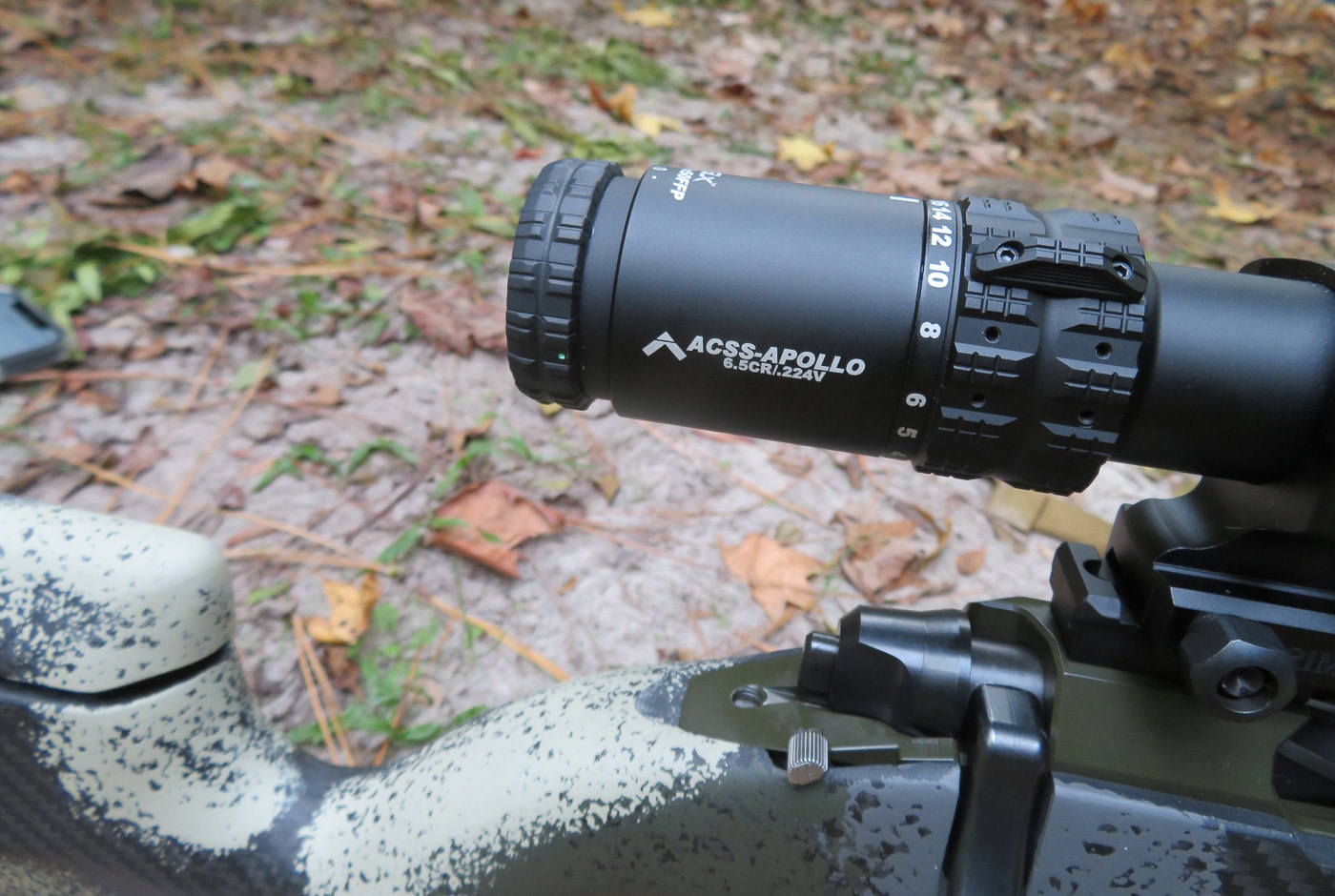
In lieu of a lever that sticks out of the magnification ring, Primary Arms attached a tab that offered the author plenty of leverage.
The elevation turret is also marked up and down.
The windage turret will lock at zero at every complete rotation.
Spin the turret down and it will stop and lock at zero.
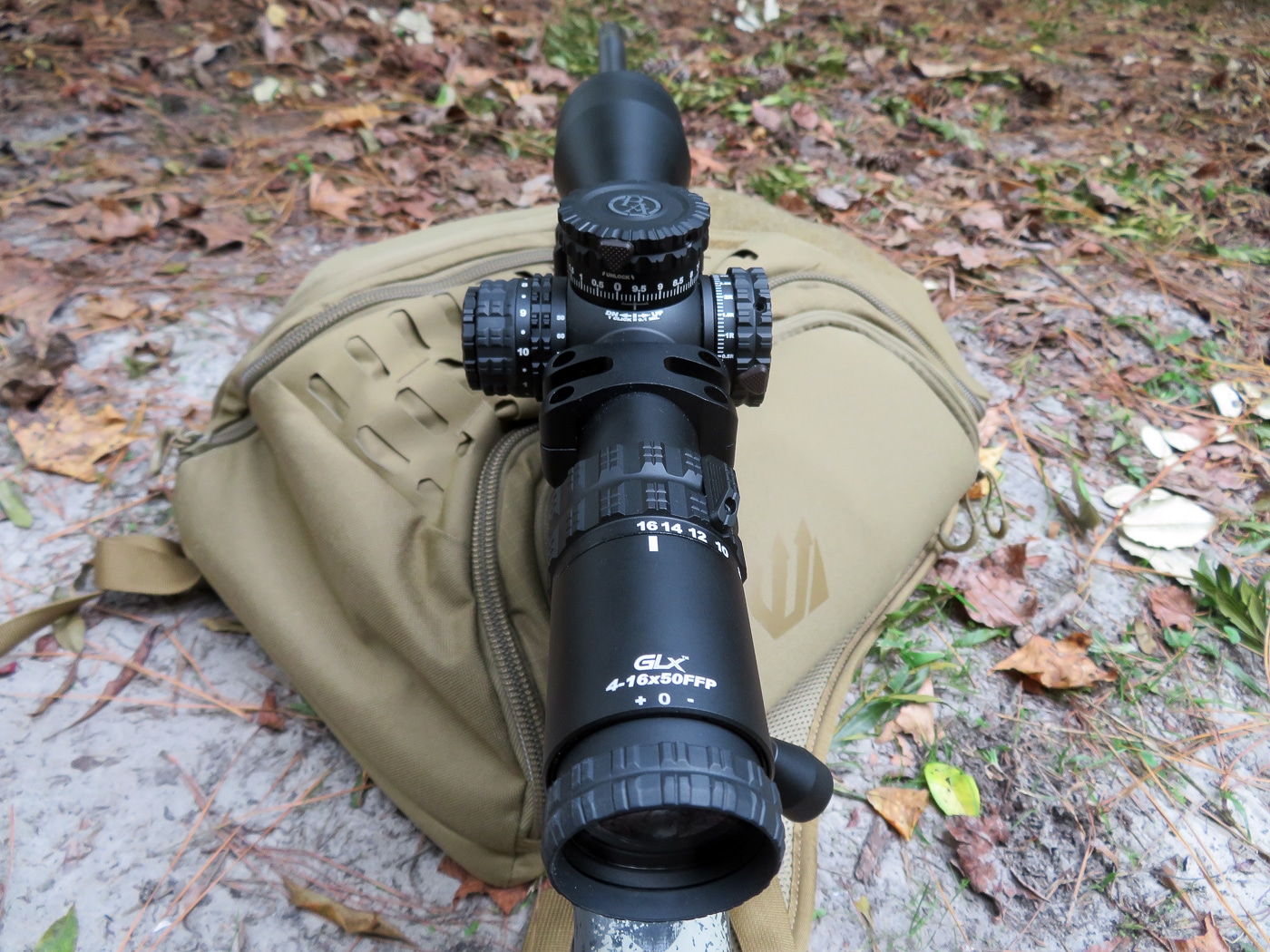
At the end of testing, the author found the Primary Arms scope performed admirably with clear glass in a relatively light package.
Brass is often used for the click ring even with high-end riflescopes.
The steel click ring and click pin are lubed and sealed, so rust should not be a concern.
ACSS Apollo Calibrated Reticle
When hunting, you dont have the time to fuss with turrets.
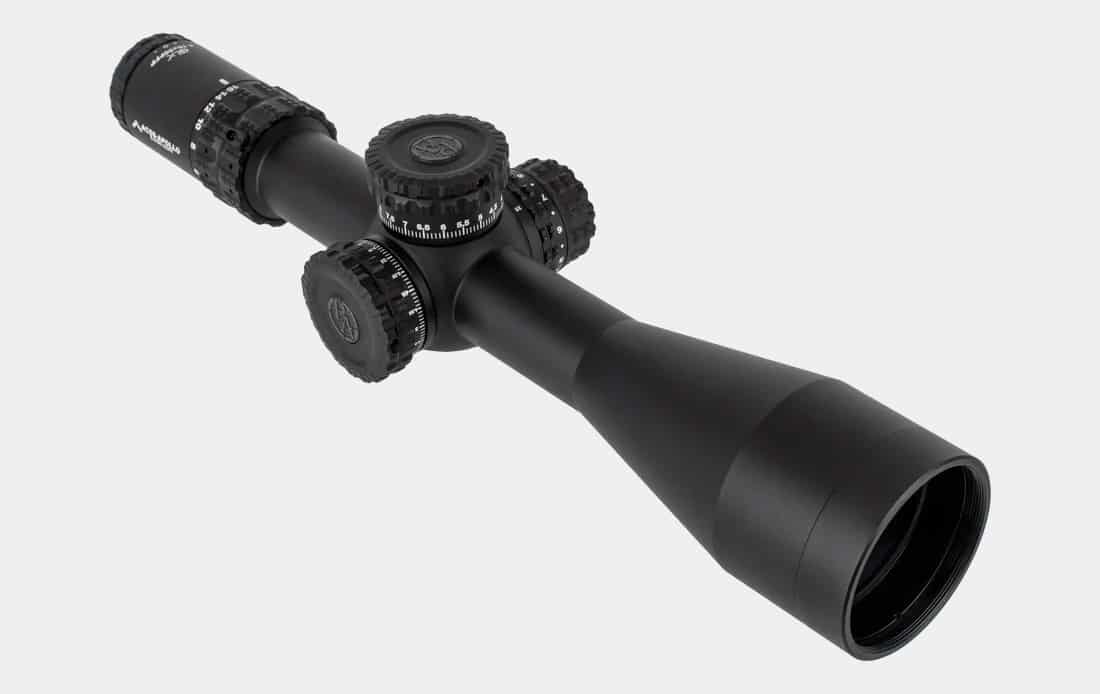
Some reticles attempt this but can be overly complicated like a college-level geometry problem.
The ACSS Apollo uses a Christmas tree pattern and at first might give you geometry exam day sweats.
However, once you understand how it is set up, it becomes easy and quick to use.

So long story short, Im using 140-gr.
So, I can go up and down the ladder quickly depending on target distance.
Wind holds are horizontal dots to the left and right off the main strata in 5 mph increments.

The ranging ladder in the top right quadrant is calibrated for an 18 wide target.
Place the horizontal line that matches the width of the target, and you now know the target distance.
The reticle is also illuminated with 10 brightness tweaks.
The illumination knob and parallax are stacked on the left side turret.
The smaller, outmost knob adjusts illumination, while the inner larger diameter knob adjusts parallax.
They are easy to distinguish and adjust.
I shot the box to test repeatability and the GLx always found its way home every time.
This is just in time for deer season.
to the set up.
Ergonomics are very good.
Glass is sharp and clear.
Looks like a winner to me!




